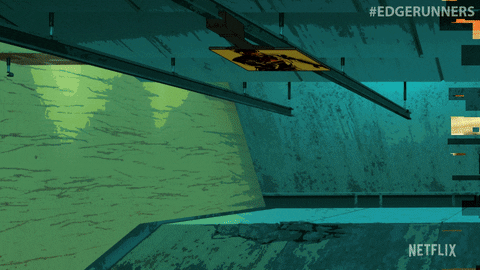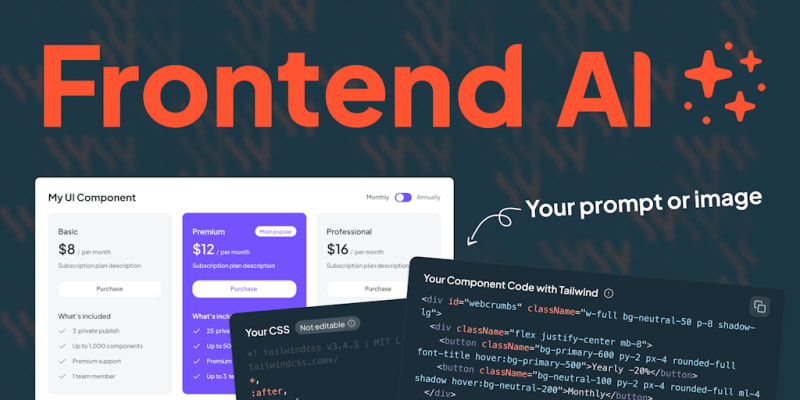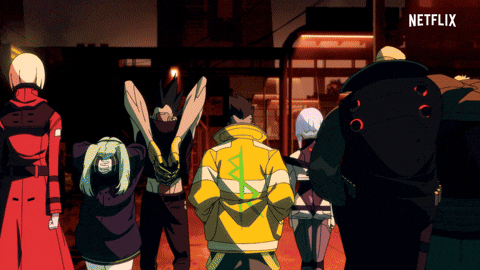Everything changes so fast these days that, standing out as a developer is more important than ever. As much as your technical skills matter, in this sea of programmers, it's your personal touch that can truly set you apart.
But how can you create your personal brand? How to apply your personal brand to your presentations and public persona? In this article, we'll walk you through the process of creating a personal brand, showcasing yourself to the public, and leaving a long-lasting mark in the developer community.
So, what’s branding actually?
Branding, in the context of personal branding, is all about creating a unique identity that encapsulates your skills, experiences, and values. It's how you present yourself to the world. It doesn’t always need to be related to you as a person though — there are numerous branding guides for companies and how they present themselves too!
When it comes to personal branding, consistency is essential. Your brand should be an authentic representation of who you are, and it should remain consistent across different platforms and interactions. This means that the way you present yourself in your portfolio, on your social media platforms, and in person should all align with your personal brand. Besides that, your brand is not just about how you present yourself, but also how others perceive you. This includes the quality of your work, your work ethic, your communication style, and even your personality traits.
Now, let me show you an example of how I sell my image, and let’s start breaking down everything you need to know on how to do it too!
First of all, the theme
Here’s a GIF of my portfolio (and you can find it here in case you want to check it for yourself). So, first of all, let’s see if we can spot a clear theme:
The bright contrast in the colors, the 8-bit font, the big buttons, writing animations, and a simple avatar image. The theme is clear: Games!
Besides that, the first initial phrase “Welcome adventurer” is a classical phrase for a specific genre of games: RPG/Medieval Games!
Great! Now, why did I choose this theme? Randomly? When the user checks the about me section, he’ll discover:
So there we go! The theme is not only consistent on all the UI, but it also contains a fragment of my personality — being a tabletop RPG Dungeon Master — on it. Defining a theme for yourself can be hard, but, starting to think about the hobbies and things that you enjoy in your personal life can give a great personal touch to your brand!
Building Your Personal Brand
Now that we have a clear understanding of what personal branding is, let's move on to the next step - building your personal brand. This process involves identifying your unique strengths and skills, defining your target audience, and finally, crafting your brand.
Identifying Your Unique Strengths and Skills
To begin with, it’s a good idea to try to identify what makes you unique as a developer. A helpful tool for this is a SWOT matrix, where you list your Strengths, Weaknesses, Opportunities, and Threats. Strengths could be your technical abilities or soft skills like communication and other ways you approach problems on a day-to-day basis. Weaknesses are areas where you could improve. Opportunities could be networking, open-source contributions, or learning new technologies and Threats could be things like a highly competitive job market or the rapid pace of technological change.
Defining Your Target Audience
Next, you need to define who your target audience is. These are the people you want to reach with your personal brand - potential employers, colleagues, or the broader developer community. Having a clear understanding of your target audience will help you tailor your brand to appeal to them. In the case of my portfolio, for example, it’s clearly tailored to potential employers!
Crafting Your Personal Brand
Once you've identified your strengths and skills and defined your target audience, you can begin crafting your personal brand. This involves deciding on a consistent image or theme (like the game theme I showed above) and communicating your values and skills.
This is also usable in the context of new brands and ideas! For example, at Webcrumbs — a great OSS plugin system, that can really streamline your development process — they started from zero and have now reached a point where the brand stands on solid ground with colors, icons, and themes that certainly cuts an impression (and even more than that, makes them memorable)!
Showcasing Yourself to the Public
Having crafted your personal brand, the next step is to showcase it to the public. This involves creating an online presence that aligns with your brand. Honestly, this can be achieved in a bunch of different ways: e.g. building a portfolio website that highlights your work and skills, or even leveraging social media platforms and GitHub to reach a wider audience.
Just make sure that, whenever you’re using a brand as a communication focus, keep the same communication tone and other aspects throughout different platforms. If you’re funny and casual everywhere, it’s not because you’re on LinkedIn that you’re not going to be casual anymore. Retain some professionalism (which is LinkedIn’s case in the general tone that exists there), but try to be as much casual as you’d be in your portfolio communications.
Looking for a showcase example?
We’re actually launching a new product here at Webcrumbs: FrontendAI! An awesome code generator for your front-end UI!
It takes you from prompt to product in seconds and it would be awesome if you could check it out! It’s totally free and can really speed things up in your development process!
🚀 Check FrontendAI at Product Hunt 🚀
Leaving a Mark in the Developer Community
There are other forms that you can create a personal brand, and, one of the bigger ones is leaving a mark in our community. This can be achieved through a variety of different ways, from networking to contributing to open-source projects, and even just sharing your knowledge with others! All those ideas present an opportunity for you to showcase your work and skills, and even more than that, your personal self to others.
Networking and Building Connections
Networking is a crucial part of building your brand. Try to attend industry events, join online forums/Reddit, and participate in developer communities. Introduce yourself, share your work, and engage with others. Building genuine relationships can help you establish a strong reputation and open up new opportunities — to be honest with you, a bunch of different projects I’ve participated in became opportunities just because I had good connections, formed throughout the daily work with the people making it, so, I can’t stress enough how important this is!
Contributing to Open-Source Projects
Another really cool way to create your brand is to contribute to open-source projects. It is a great way to showcase your skills and give back to the community on things you enjoy while also providing an excellent opportunity to collaborate with other developers and learn from them.
Your contributions can serve as a testament to your expertise and dedication, enhancing your brand and serving as proof of trust about the quality of your work — a few positions even ask for your personal contributions while in the interview.
Here at Webcrumbs, we’re actually Open-Source, so if you’re looking somewhere to start contributing to and you’re looking for places that you can have a lot of impact, feel free to star us and check our issues! Also, in case you haven't checked out the launch, here's a quick link for it:
Sharing Knowledge Through Blogging and Journaling
Sharing your knowledge through blogging or vlogging can position you as a thought leader in your field. Write about your experiences, share tutorials, or discuss industry trends. This not only helps others but also reinforces your expertise and passion for your work. Consistently producing quality content can significantly boost your personal brand.
This was part of the reason I’ve actually begun to write here. After receiving some great feedback at work, I started to think of ways that I could share my knowledge with other people and show a few opinions and takes I had in software engineering. I can’t recommend enough how journaling your journey can impact your life — it’s a really powerful and yet simple habit.
Conclusion
In summary, creating a personal brand as a developer is a multifaceted process that involves identifying your unique strengths, defining your target audience, and showcasing your skills and personality through various platforms. By building a consistent and authentic brand, you can stand out in the competitive tech industry and leave a lasting impression in the developer community.
Don't forget to network, contribute to open-source projects, and share your knowledge to further solidify your brand. We'd love to hear your thoughts and experiences on personal branding, so feel free to leave a comment below. Also, be sure to check out WebCrumbs for some exciting tools and opportunities to contribute to open-source projects!
















































interested